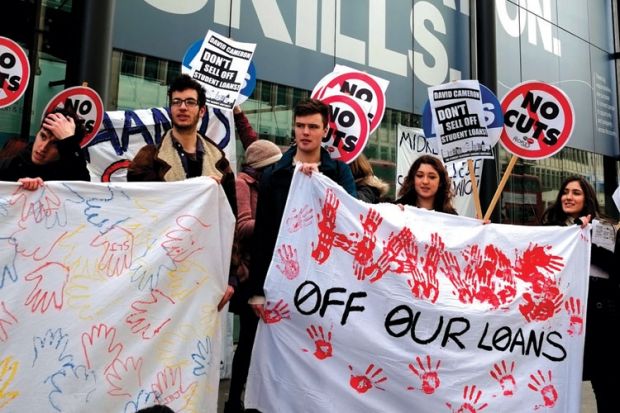Source: Alamy
Suspended: student loans will not be paid during the investigations
The Student Loans Company is investigating 24 private colleges after finding “potential irregularities”, amid claims that some for-profit institutions are misusing public funding.
Margaret Hodge, chair of the Public Accounts Committee, last week said she has asked the National Audit Office to start an inquiry into public funding at for-profit colleges, following allegations about empty classrooms at the London School of Science and Technology.
There is growing scrutiny of David Willetts, the universities and science minister, over his decision to allow unrestrained expansion of student numbers by for-profit colleges.
Nearly £1 billion will be paid out to students at private providers by the Student Loans Company next year, up from just £30 million in 2010, a level of spending that will add to the squeeze on funding for universities.
Following the suspension of designations at a number of private colleges last year, a spokesman for the SLC said it has been “investigating 24 private institutions after identifying potential irregularities during routine checks and being alerted to possible issues from other sources.
“The Department for Business, Innovation and Skills instructed SLC to suspend payments to students at these institutions while investigations were carried out.
“BIS and SLC have a duty to protect public monies and must thoroughly investigate any such allegations. These investigations are still ongoing and an update will be issued once concluded.”
The Guardian has alleged that classrooms at LSST were empty despite it having 1,500 students, many of them claiming support from the public-backed Student Loans Company, and that the college has offered places to students without the required skills. LSST denied the allegations.
The Quality Assurance Agency is now investigating LSST under its concerns scheme, just eight months after giving the college a clean bill of health in a review for educational oversight (REO).
A QAA spokeswoman said the organisation first visited LSST in 2012, but an increase in student numbers “triggered a further full review in 2013, which resulted in positive judgements about LSST. However, in the 11 months since this review was published, the school has expanded rapidly, triggering a further full review in 2014.”
The spokeswoman added that “an application to our concerns scheme earlier in the year means that the review is on hold until the autumn while QAA carries out a full investigation into the allegations brought by the complainant”.
The spokeswoman also said: “We do not have the capacity or authority routinely to monitor student attendance.”
But she said that new applicants for REO – the QAA review route favoured by private colleges – will be subject to checks on governance, management and financial sustainability from 2015-16.

